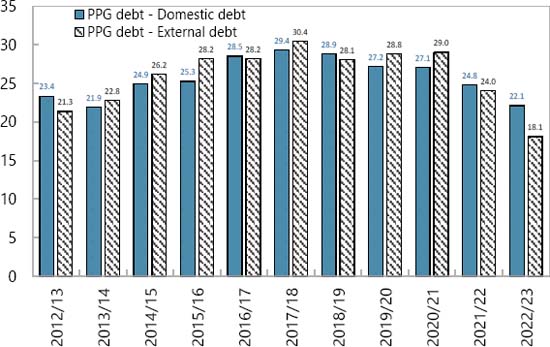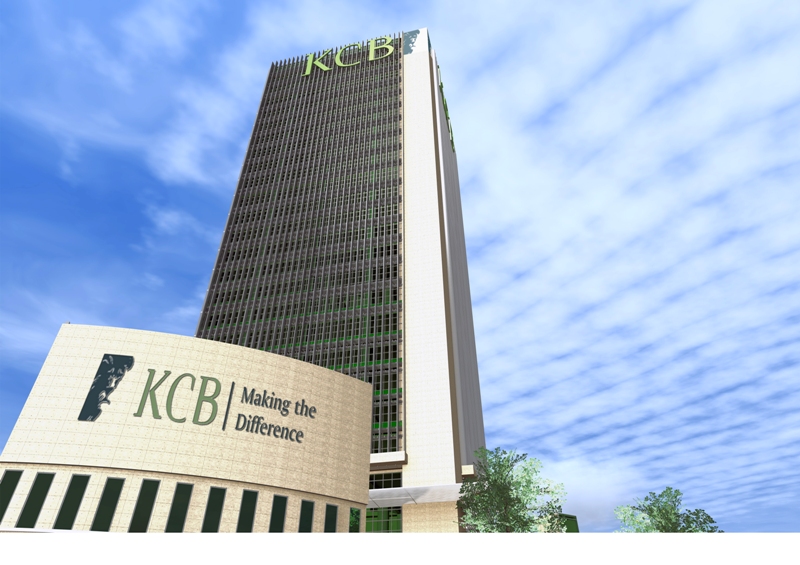Business & Money
JPMorgan Chase Enters Kenya: Landmark Move for East Africa
“JPMorgan’s decision to establish a representative office in Kenya affirms the confidence that global financial institutions have in our economy. It is a strong signal that Kenya is a key player in the financial architecture of Africa, and we look forward to welcoming more international investments,”said CBK Governor Kamau Thugge.

: JPMorgan Chase has been granted a license by the Central Bank of Kenya to establish a representative office in Nairobi, marking the U.S. banking giant’s strategic expansion into East Africa. This move strengthens Kenya’s position as a financial hub and opens doors for increased foreign investment and partnerships in the region
By Charles Wachira
In a major development for Kenya’s financial sector, the Central Bank of Kenya (CBK) on October 14, 2024, granted a license to JPMorgan Chase, one of the largest banking institutions globally, with assets totaling over $4.1 trillion. The bank has been authorized to open a representative office in Nairobi, marking a significant step in its long-anticipated entry into East Africa’s biggest economy.
The establishment of the JPMorgan Chase N.A. Representative Office Kenya comes just ahead of a scheduled visit by JPMorgan CEO Jamie Dimon, who is set to tour Kenya, Nigeria, South Africa, and Côte d’Ivoire as part of the bank’s strategy to expand its footprint across the African continent.
“The Central Bank of Kenya (CBK) announces the granting of authority to JPMorgan Chase Bank N.A. of the United States to establish a representative office in Kenya by the name JPMorgan Chase N.A. Representative Office Kenya. This authority is granted pursuant to Section 43 of the Banking Act and follows the fulfillment by JPMorgan of the stipulated requirements,” CBK said in its official statement.
What a Representative Office Means for Kenya
Under Kenyan law, foreign banks’ representative offices serve as marketing and liaison branches but are not allowed to conduct direct banking transactions, such as accepting deposits or offering loans. Instead, they focus on marketing their services and signing deals on behalf of their parent banks. The JPMorgan office in Nairobi will follow this model, seeking to market its banking services while capitalizing on large-scale transactions that local banks may not be well-equipped to handle.
This move ends a decade-long wait for JPMorgan, which initially expressed interest in entering the Kenyan market back in 2012. With this development, JPMorgan becomes the second U.S. bank with a presence in Nairobi, joining CitiBank in targeting multinationals and sovereign debt deals in East Africa.
CBK noted that JPMorgan’s entry into Kenya will not only diversify the country’s financial sector but also catalyze trade and investment across the region.
“The JPMorgan Chase Bank N.A Representative Office Kenya will contribute to the diversity of Kenya’s financial sector and catalyze trade and investments. Additionally, the authorization of the representative office affirms Kenya’s standing as a premier financial services hub,” the CBK said in a statement.
A Global Giant Eyes East Africa
JPMorgan Chase, already a significant player in Africa with offices in Nigeria and South Africa, is now targeting Kenya as its East African hub. The bank’s operations on the continent largely revolve around asset management, commercial banking, and investment services, particularly for multinational corporations and sovereign debt transactions. This expansion into Kenya aligns with the bank’s strategy of tapping into emerging markets for growth.
CEO Jamie Dimon’s upcoming visit to Kenya is expected to reinforce the bank’s long-term commitment to the region. Dimon has been vocal about JPMorgan’s interest in expanding across Africa, having hired a team in 2018 to explore opportunities in Kenya and Ghana. Now, with Kenya officially on board, JPMorgan is looking to increase its involvement in major corporate and sovereign debt deals across the continent.
Why Now?
The timing of JPMorgan’s entry is particularly significant as it comes at a time when global financial institutions are increasingly eyeing Africa for investment opportunities. In 2023, Kenya selected JPMorgan, alongside CitiBank and Standard Chartered Bank, as lead arrangers for its Eurobond, underscoring the bank’s growing involvement in the region’s financial activities.
The new office in Nairobi positions JPMorgan to capture a larger share of East Africa’s growing market, with a particular focus on serving U.S. multinationals, wealth funds, and institutional investors operating in the region. Dimon’s visit is also expected to include discussions on expanding operations to other emerging financial hubs like Côte d’Ivoire, which could further cement the bank’s presence on the continent.
Economic Impact and Opportunities
JPMorgan’s entry into Kenya is a win for the country’s ambition to become the premier financial services hub in East Africa. With the bank’s arrival, Kenya stands to gain from increased foreign direct investment, job creation, and access to global financial expertise. For local businesses, particularly those dealing with large-scale investments, JPMorgan’s presence offers new opportunities for growth and partnership.
This move is also symbolic of Kenya’s growing integration into global financial markets. As the country continues to develop infrastructure and deepen financial reforms under its Vision 2030 agenda, attracting global financial giants like JPMorgan reaffirms its standing as a key player in Africa’s economic transformation.
Looking Ahead
As JPMorgan Chase begins its operations in Nairobi, Kenya is likely to see further inflows of foreign capital and interest from other global financial institutions looking to tap into the East African market. The move sets a precedent, positioning Kenya not just as a regional leader, but as a gateway to Africa for global financial services.
In the words of CBK Governor Kamau Thugge, “JPMorgan’s decision to establish a representative office in Kenya affirms the confidence that global financial institutions have in our economy. It is a strong signal that Kenya is a key player in the financial architecture of Africa, and we look forward to welcoming more international investments.”
JPMorgan’s Nairobi office will serve as a cornerstone in the bank’s African expansion strategy, reinforcing Kenya’s role as a financial hub and accelerating its economic development goals. As the country welcomes this new chapter, the future of Kenya’s financial sector looks poised for unprecedented growth.
Keywords:JPMorgan Chase Kenya:Nairobi financial hub:JPMorgan East Africa expansion:Kenya foreign investment::Global banks in Africa
Business & Money
Ethiopia Attracts $53.5 Million in Q1 Investments, Creates 8,700 Jobs

: Ethiopia attracts $53.5M in Q1 investments, creating 8,700 jobs. Growth driven
by reforms, with a focus on service and manufacturing sectors.
The Addis Ababa Investment Commission (AAIC) announced a promising start to the
2023/24 fiscal year, with 612 investors registering a combined capital of Birr 2.93 billion
($53.5 million) in the first quarter.
This reflects a 13% growth compared to the same period last year, signalling sustained
investor confidence despite economic challenges.
Speaking at a press briefing on November 30, AAIC’s Director of Communication,
Meseret Woldemariam, credited the growth to policy reforms and enhanced investor
facilitation.
“Our efforts to streamline investment processes and resolve bottlenecks are yielding
results. We remain committed to ensuring investors thrive in Addis Ababa,” she said.
SECTORIAL CONTRIBUTIONS
The majority of the newly licensed investors are in the service and manufacturing
sectors. The service sector includes hotels, tourism, and IT ventures, while the manufacturing
investments span electrical products, steel, wood, and textiles.
These investments have generated 8,707 jobs, comprising 770 permanent and 490
temporary positions created by newly licensed entities.
The AAIC has also initiated field monitoring visits to ensure operational readiness. “Our
team works closely with new investors to address challenges promptly, enabling faster
project rollout,” Meseret added.
CHALLENGES AND REFORMS
Investors continue to face hurdles such as foreign currency shortages and workspace
availability. However, the commission highlighted progress due to macroeconomic reforms,
particularly improving foreign currency access.
“We are actively collaborating with the Mayor’s office to address workspace issues
through professional support in rental solutions and operational guidance,” Meseret
explained.
Recent reforms in the National Bank of Ethiopia’s foreign exchange policy have also
been pivotal. In October, the central bank announced a 30% increase in forex allocation to priority sectors, a move welcomed by stakeholders.
EXPANSION PLANS AND PROJECTIONS
The AAIC aims to capitalise on the momentum, targeting Birr 15 billion ($274 million) in
investments by the end of the fiscal year. A new digital investment portal, launched in November, promises to reduce registration times by 40% and improve transparency.
“We are confident these initiatives will not only attract more investors but also deepen
the trust of existing ones,” Meseret concluded.
INVESTOR SENTIMENT
Prominent business leader Ahmed Yusuf, who recently launched a $3 million IT hub in
Addis Ababa, praised the commission’s efforts.
“The improvements in investor services and forex allocation are encouraging. We hope
to see more streamlined processes for licensing and operations,” he remarked.
As Ethiopia seeks to position itself as a regional investment hub, sustained efforts in
addressing investor concerns and enhancing infrastructure will be critical.
Business & Money
Ethiopia Eyes December Debt Restructuring After IMF Review

: Ethiopia’s December IMF review may unlock long-awaited debt restructuring,
crucial for economic reforms and stalled projects like the Koysha Hydroelectric
Dam.
Ethiopia’s much-anticipated debt restructuring prospects could gain clarity this
December, as the country awaits the second review under its four-year International
Monetary Fund (IMF) program.
The Extended Credit Facility (ECF), launched in August 2023, remains central to
Ethiopia’s economic reform and debt relief efforts.
Progress Toward Debt Treatment
Last week, Ethiopian authorities reached a staff-level agreement with the IMF tied to the
second review. A comprehensive report on this review is set for release in December, a month many stakeholders, including the National Bank of Ethiopia (NBE), view as pivotal for
advancing debt treatment plans.
“Debt restructuring stands at the centre of our reform agenda. With the report’s release,
we expect rescheduling talks to gain momentum,” said Habtamu Workneh, Director of
External Economic Analysis & International Relations at the NBE.
He added that discussions are focusing primarily on extending maturity dates for Ethiopia’s debts.
IMF Support and Engagements with Creditors
The IMF has provided Ethiopia with USD 2.5 billion under its current fiscal program,
offering critical support to the country’s macroeconomic stabilisation efforts.
In parallel, Ethiopian authorities have engaged with Eurobond holders and the Official
Creditors Committee (OCC).
A debt restructuring proposal was submitted to Eurobond holders in July 2024, following
key discussions in December 2023 and May 2024.
Additionally, a global investor update held on October 1, 2024, highlighted the nation’s
ongoing economic challenges and progress in creditor negotiations.
Shifting Debt Landscape
The government has reported improvements in its debt profile. Planning and Development Minister Fitsum Assefa (PhD) announced that Ethiopia had ceased relying on commercial loans and direct borrowing from the central bank.
She noted a significant drop in the external debt-to-GDP ratio to 13.7 per cent, though
the IMF’s Debt Sustainability Analysis, published in July 2024, pegged the ratio at 18
per cent as of June 2023.
External debt accounts for 45 per cent of Ethiopia’s total public and publicly guaranteed
debt, the report stated.
Financing Challenges Persist
Despite these reforms, Ethiopia’s financing challenges remain acute.
The government is seeking nearly USD 1 billion to complete the Koysha Hydroelectric
Dam project, which has stalled at two-thirds completion due to funding shortfalls.
The project is a critical component of Ethiopia’s development strategy, but its delays
underscore the broader fiscal pressures the country faces.
Expert Views on Economic Outlook
While Ethiopian officials are optimistic about the December review as a turning point,
analysts caution that real progress hinges on creditor consensus and the government’s
ability to implement reforms.
Critics have also raised concerns about inflated GDP growth figures, which they argue
may distort Ethiopia’s true debt sustainability.
Looking Ahead
The IMF review, coupled with Ethiopia’s active engagement with creditors, could mark a
a significant step forward in its quest for debt relief.
December will likely be a defining month for the country’s economic future, with broader
implications for its ability to attract investment and complete critical infrastructure
projects.
Business & Money
KCB Group Surpasses Equity with US$ 342.31 Million Nine-Month Profit

: KCB Group reports Sh44.5B ( US$ 342.31) nine-month profit, outpacing
Equity Bank. Learn about its 49% growth, challenges, and stock performance this
year.
KCB Group Plc has outperformed Equity Bank to cement its position as Kenya’s leading
lender, posting a net profit of Sh44.5 billion for the nine months ending September
This represents a 49% year-on-year growth, surpassing Equity Bank’s Sh37.5
billion profit during the same period.
Profit Growth Driven by Core Business Performance
The remarkable profit growth was fueled by higher earnings from both interest and non-
interest income streams. KCB’s diverse revenue base has been pivotal in maintaining
its dominance in the competitive banking sector.
Non-Performing Loans a Key Concern
Despite the impressive profit growth, KCB’s non-performing loan (NPL) ratio rose to
18.5%, compared to 16.5% last year. This increase highlights persistent challenges in
managing credit risk, with Chief Financial Officer Lawrence Kimathi acknowledging it as
a “pain point” for the bank.
KCB Stock Outshines Peers on NSE
KCB’s strong financial performance has translated into exceptional stock market results.
The bank’s stock has risen 78.8% year-to-date, making it the best-performing banking
stock on the Nairobi Securities Exchange (NSE).
Plans to Sell National Bank of Kenya
Earlier this year, KCB announced plans to sell its struggling subsidiary, National Bank of
Kenya (NBK), to Nigeria’s Access Bank. While Nigerian regulators have approved the
deal, it is still awaiting clearance from Kenya’s Central Bank. The sale aims to
streamline KCB’s operations and address losses at NBK.
CEO Paul Russo Optimistic About Year-End Performance
“The journey has not been without its hurdles, but our ability to walk alongside our
customers has driven our success,” said KCB CEO Paul Russo. He expressed
confidence in closing the year on a high note, leveraging improving economic conditions
across the region.
Key Figures at a Glance
● Net Profit: Sh44.5 billion (+49%)
● Non-Performing Loan Ratio: 18.5% (up from 16.5%)
● Stock Performance: +78.8% year-to-date
KCB’s strong performance underscores its resilience in navigating challenges and its
commitment to sustaining growth in Kenya’s banking sector.
-

 Business & Money9 months ago
Business & Money9 months agoEquity Group Announces Kshs 15.1 Billion Dividend Amid Strong Performance
-

 Politics3 months ago
Politics3 months agoFred Okengo Matiang’i vs. President William Ruto: A 2027 Election Showdown
-

 Politics2 months ago
Politics2 months agoIchung’wah Faces Mt. Kenya Backlash Over Gachagua Impeachment Support
-

 Politics5 months ago
Politics5 months agoPresident Ruto’s Bold Cabinet Dismissal Sparks Hope for Change
-

 Politics5 months ago
Politics5 months agoKenya Grapples with Investor Confidence Crisis Amid Tax Protest Fallout
-

 Politics5 months ago
Politics5 months agoPresident Ruto’s Lavish Spending Amid Kenya’s Economic Struggles Sparks Outrage
-

 Politics4 months ago
Politics4 months agoJohn Mbadi Takes Over Kenya’s Treasury: Challenges Ahead
-

 Business & Money1 month ago
Business & Money1 month agoMeet Kariuki Ngari: Standard Chartered Bank’s new CEO of Africa. What’s Next?





